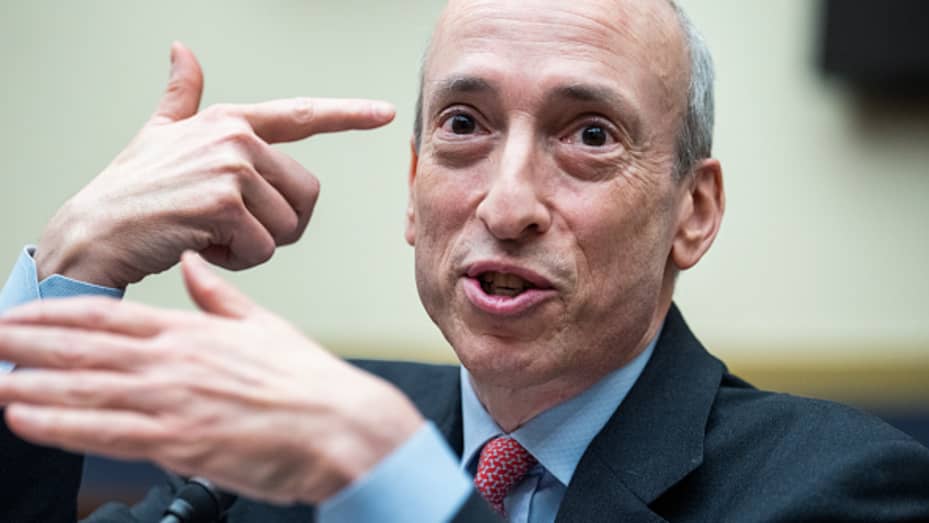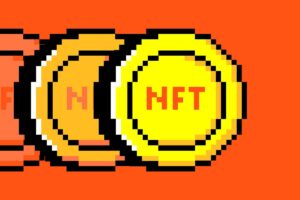Obscure SEC Rule Prevents Banks’ Custody Of Bitcoin, Crypto

In a stunning revelation, Castle Island Ventures partner Matt Walsh has exposed via Twitter how the US Securities and Exchange Commission (SEC) is preventing US banks from holding Bitcoin and other cryptocurrencies through an obscure accounting rule that was quietly introduced and has received little attention so far. This rule, known as Staff Accounting Bulletin No. 121 (SAB 121), has already been in effect since March 31, 2022, leaving many questioning its motives and implications.
Walsh took to Twitter to shed light on this alarming rule. He pointed out that Gary Gensler, the head of the SEC and a key figure in Elizabeth Warren’s anti-crypto campaign, were using SAB 121 to transform the SEC into a merit regulator, while utilizing an accounting rule to keep major banks at bay when it comes to cryptocurrencies in the United States. Walsh stated:
SAB 121 and how Gary Gensler, the lead henchman of Elizabeth Warren’s anti-crypto army, is turning the SEC into a merit regulator and using an obscure accounting rule to prevent major banks from touching crypto in the United States.
SEC chair Gary Gensler and US Senator Elizabeth Warren | Source: Forbes
But What Exactly Does SAB 121 Entail?
Published by the SEC in March 2022, this rule applies to entities that file financial information with the SEC under U.S. Generally Accepted Accounting Principles (GAAP) or International Financial Reporting Standards (IFRS) and have a safeguarding obligation for crypto assets. Its core requirement is for these entities to recognize a liability on their balance sheets and a corresponding asset under ASC 805, Business Combinations.
The crux of the matter lies in how SAB 121 forces banks offering Bitcoin custody services to treat the customer’s Bitcoins as if they were the bank’s own assets. This means holding more U.S. dollars as a capital charge against the asset. This treatment contradicts how custodians typically handle other asset classes, as Walsh highlights:
This accounting treatment would be in conflict with every other asset that custodians safekeep… It makes zero sense.
Already, the consequences of SAB 121 are being felt by major financial institutions. Bank of New York Mellon (BNY), in their comment letter to the SEC, expressed how SAB 121 renders their crypto business non-viable, despite being widely recognized as the most trusted custodian in the world. They posed a critical question:
Why is the SEC decapitating BNY’s crypto custody business?
Impact On The Bitcoin And Crypto Industry
Anchorage, in their comment letter, pointed out that SAB 121 appears to be blocking BNY’s custody offering from even getting off the ground. It is evident that the SEC’s rule is impeding the growth of reputable and regulated firms, preventing them from providing much-needed services within the crypto market.
The outcry against SAB 121 extends beyond the industry. Senator Cynthia Lummis and Congressman Patrick McHenry have demanded answers, emphasizing in a letter that this guidance would stifle banks and credit unions from offering Bitcoin and crypto custody services. Even within the SEC itself, Commissioner Hester Peirce publicly expressed her disagreement with the guidance.
The motives behind this perplexing rule become even more suspect when we consider the broader political landscape. Matt Walsh makes a bold claim, asserting that this move serves the agenda of Senator Elizabeth Warren, who has long been an advocate for increased regulation and control over the digital asset industry. He points out:
As early as September 2021, Warren has been urging Gensler to fill the void left by Congress and shut down the digital asset industry.
If Walsh’s allegations hold true, this raises serious concerns about the influence and decision-making power of unelected officials such as Gary Gensler, who now holds sway over Bitcoin and crypto policy in the United States.
US Congress must act swiftly to address this pressing issue and protect the growth and innovation of the industry. Repealing SAB 121 should be a top priority, as it removes the oppressive rule that inhibits banks from offering custody services for digital assets.
Additionally, passing a digital asset market structure bill and a stablecoin bill would establish a clear and supportive regulatory framework, encouraging responsible growth while ensuring consumer protection, as Walsh concludes.
At press time, the Bitcoin price stood at $30,092.
Bitcoin drops to lower end of the range, 4-hour chart | Source: BTCUSD on TradingView.com
Featured image from CNBC, chart from TradingView.com
Source link
#Obscure #SEC #Rule #Prevents #Banks #Custody #Bitcoin #Crypto





